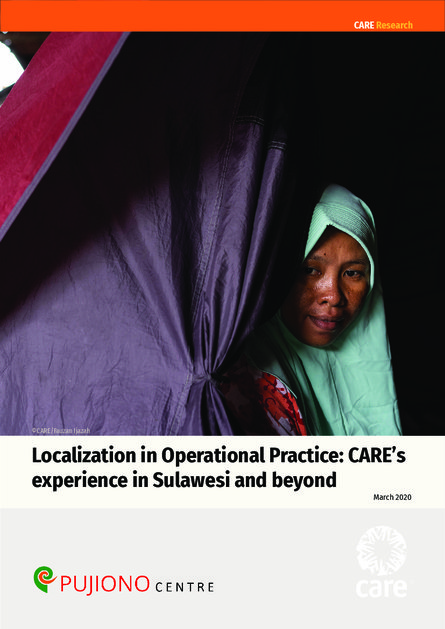
CARE is committed to working with partners in emergency response and furthering the global humanitarian localization agenda. This study, drawing on CARE’s response to the 2018 earthquake and tsunami in Sulawesi, Indonesia, aimed to explore what are the key internal operational barriers, challenges and enablers for an effective, gender-sensitive humanitarian response, which supports localization principles and goals.
The report presents the key findings from the research including examples of best practice and key recommendations. While the focus is on CARE’s operations, we believe they will be relevant for other organisations who may be similarly reflecting on their own experience of localization in operational practice. We hope that by sharing our insights we may contribute further to the essential but sometimes overlooked conversation about the realities of translating localization policy into practice.